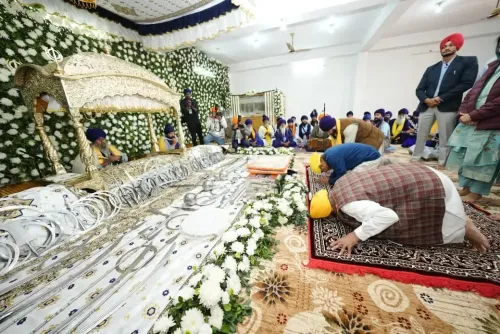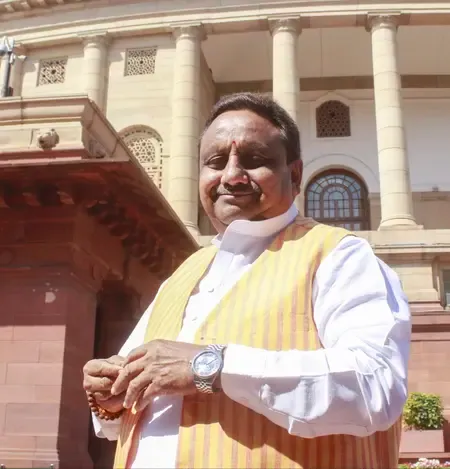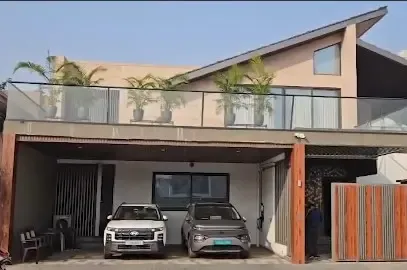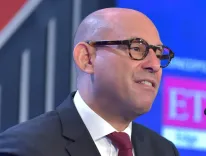Was There a Sinister Plot to Undermine Indian Democracy 50 Years Ago?
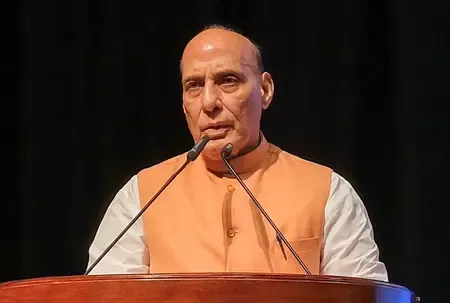
Synopsis
Key Takeaways
- The Emergency lasted from June 25, 1975, to March 21, 1977.
- It is considered a significant violation of democratic principles in India.
- Opposition leaders faced imprisonment and suppression during this time.
- The BJP commemorates this day to emphasize the importance of constitutional governance.
- Awareness initiatives aim to educate youth about the perils of authoritarianism.
New Delhi, June 25 (NationPress) Defence Minister Rajnath Singh stated on Wednesday that half a century ago, a malicious effort was made to suffocate Indian democracy through the declaration of Emergency, during which fundamental rights were curtailed and opposition leaders were imprisoned under the regime of then Prime Minister Indira Gandhi.
In a message shared on the social media platform X, he described the Emergency as "the most grim chapter in Indian democracy", while honoring those who resisted the oppressive regime.
"On this day, fifty years ago, a malicious effort was made to stifle Indian democracy by declaring the Emergency. The nation remembers this period as the most grim chapter in our democratic history. The way the Emergency was enforced, disregarding the Constitution, stands as a stark example of power abuse and authoritarianism. All opposition leaders were incarcerated. There was not a single constitutional body that was not exploited. Nevertheless, the democratic spirit of our country could not be extinguished, despite the government's relentless efforts," Rajnath Singh remarked.
The BJP is commemorating June 25 as 'Samvidhan Hatya Diwas' (Day of Constitutional Murder) nationwide, marking what it describes as a significant breakdown in India's democratic framework.
Comprehensive outreach initiatives have been organized at both booth and district levels. According to BJP officials, the objective is to educate the younger generation regarding the perils of authoritarianism and the significance of safeguarding democratic principles.
Union Minister Singh also acknowledged the contributions of those who opposed the Emergency.
"Today, democracy thrives in India, thanks to the sacrifices of those who resisted during the Emergency, faced imprisonment, and endured hardships. Future generations will always remember their sacrifices. Prime Minister Shri Modiji has chosen to observe June 25 as 'Samvidhan Hatya Diwas' to ensure that every citizen recalls how dictatorship attempts to annihilate democracy," he remarked.
The Emergency, imposed on June 25, 1975, remains one of the most contentious periods in Indian history. The government cited "internal disturbances" as justification for its imposition, but critics contend it was primarily an effort to suppress dissent following the invalidation of Indira Gandhi's election by a court.

